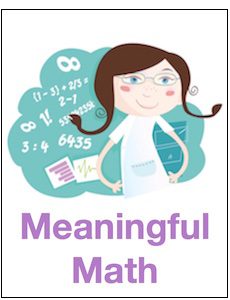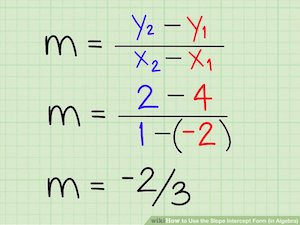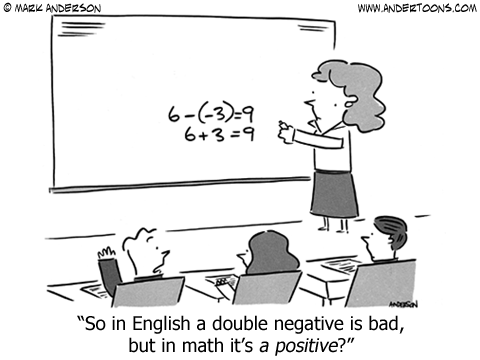How My “Assumes” Affect My Classroom
A MiddleWeb Blog

For example, I assumed that when I allowed students to work with one or more partners to complete an assignment, they would work on the problems together and they would each work every problem. Instead, the students wanted to divvy up the work and it upset me.
It dawned on me that the reason I was upset was because I assumed that all students knew what was expected when working with a partner. However, I had not given them explicit instructions to not divvy up the work.
Some students probably did know that wasn’t the right thing to do, but others probably thought that divvying up the work was a perfectly legitimate way to complete the assignment. My assumptions led to a misunderstanding that impeded their learning.
So I began to wonder: What else am I taking for granted that might be having a negative impact on my classroom? After some reflection I realized that the assumptions I typically make fall into two broad categories: behavior and knowledge.
Assumptions about behavior
There are some standards of behavior that I think should be known by the time a student reaches middle and high school. For example, when I am at the board giving my students notes to put in their notebook (which usually lasts ten minutes or less), I assume that students know that is not the time to walk in front of the whole class and throw away a single piece of paper.
That is a behavior that I assumed they would know is impolite. It has always annoyed me when students do this, and I always assumed it was a sign of disrespect.
However, recently a student who is always respectful and very quiet walked in front of me and the board and the entire classroom to throw away a single piece of paper. I didn’t say anything because I didn’t want to embarrass her.
Two days later she got up to do the same thing. I quietly whispered, “wait just a few minutes.” She looked at me genuinely surprised. It dawned on me that I had assumed she knew the “unwritten and unspoken” rule, and in reality she did not. In the future if I don’t want students to throw away trash in the middle of notetaking, I need to explicitly state it.
Students are generally reasonable and will be able to understand that it is distracting for others and makes the student miss out on their notes. It was wrong for me to immediately assume that the student was being disrespectful, although I realize sometimes that may be the case.
It’s also wrong to assume students will be able to interpret general statements in the correct way. For example, we are a one-to-one school and students sometimes want to “multi-task” by using their Chromebook while they are supposed to be learning “tech free.” So at the beginning of class when I would see a dozen Chromebooks in the up position, I would say, “I need your full attention” or something to that effect.
I expected to see all the Chromebooks close; what actually happened was that about half the students would close their Chromebooks. I found it puzzling and annoying. I was assuming that they could correctly interpret my vague instructions. After two weeks I changed to the more specific “please close your Chromebooks,” and the results were almost total compliance. Again I had assumed bad motives and I think (mostly) we just weren’t on the same page.
Assumptions about knowledge
I find that making assumptions about what students know is one of the biggest obstacles I face as a teacher. It is so insidious I often don’t realize I’m doing it.
For example, we are currently graphing lines and solving equations, and I often find myself saying, “solve for y” or I might say, “isolate the variable.” I assume that all my students know what I mean when I say that. I recently learned that is not the case.

It made me realize that I have to be careful throwing “jargon” around. I know that students need to develop a math vocabulary, but I need to be aware that assuming a student knows what I mean can be counterproductive.
When graphing lines, you also have to deal with slope. My students were mistakenly graphing lines with negative slope as having a positive slope. I knew they were thinking the negative sign went with the numerator and denominator, but I wasn’t sure why. I assumed they knew how the negative sign and fractions worked.
When we were discussing it, a student said, “when the negative is out front, I think it goes with the top and bottom” (his words). Once I realized what the actual problem was (turns out other students thought the same thing), we talked about rewriting the equation and putting the negative sign with numerator or denominator. I’m sure it won’t completely eliminate the problem, but at least I’m not assuming that I know what the misunderstanding is.
Now I ask, “What am I assuming?”
When you teach students in the upper grades, you start to think about them as little adults, and I need to remember there are things they probably don’t know. When their behavior doesn’t align with what I think it should, it’s wrong for me to automatically assume they are being disrespectful.
Once I was aware of it, I started to notice so many places in my lessons where I had assumed that students had certain knowledge. So now when I plan my lessons, I ask myself what am I assuming that the students already know? Then, is it reasonable to assume that? Also, can I assume that students are familiar with the vocabulary I am using? If not, then I need to take the time to adequately explain the vocabulary or terms I am using.
I know I’ll keep discovering new assumptions, and I can’t make enough procedures to avoid all misunderstandings. But I can do a better job of not making immediate judgments, and I can be more reflective about what I can reasonably expect students to know without my telling them.
What assumptions have led you astray? Please share!

































I appreciated this thoughtful article. Helps me in my math middle school classroom.
I started teaching engineering courses after many years of professional practice. Had a similar experience and made the same adjustments. Kept singing the Dylan refrain “The Times They Are A Changing” in my head.
I was once teaching an anatomy class to juniors and seniors. It was the very first day and I was new at the school. I kept using the word cadaver as we were lookin at the history of studying anatomy. About 20 minutes into the class, a student finally raised his hand and asked what’s a cadaver? After that I realized most of the class did not know what a cadaver was.
I have had the same thing happen, and I often wonder what if that student hadn’t asked? Then I would have never known!
When I’ve been teaching probability I realised a couple of years ago that I have assumed that all students know what cards are in a deck. Now I start the unit with students physically looking at a deck to familiarise themselves. Such a simple change that has made a huge difference.
I teach AP Stats and we use cards alot and I run into the same thing! Many of my students don’t know about the suits or how many cards are in a deck.